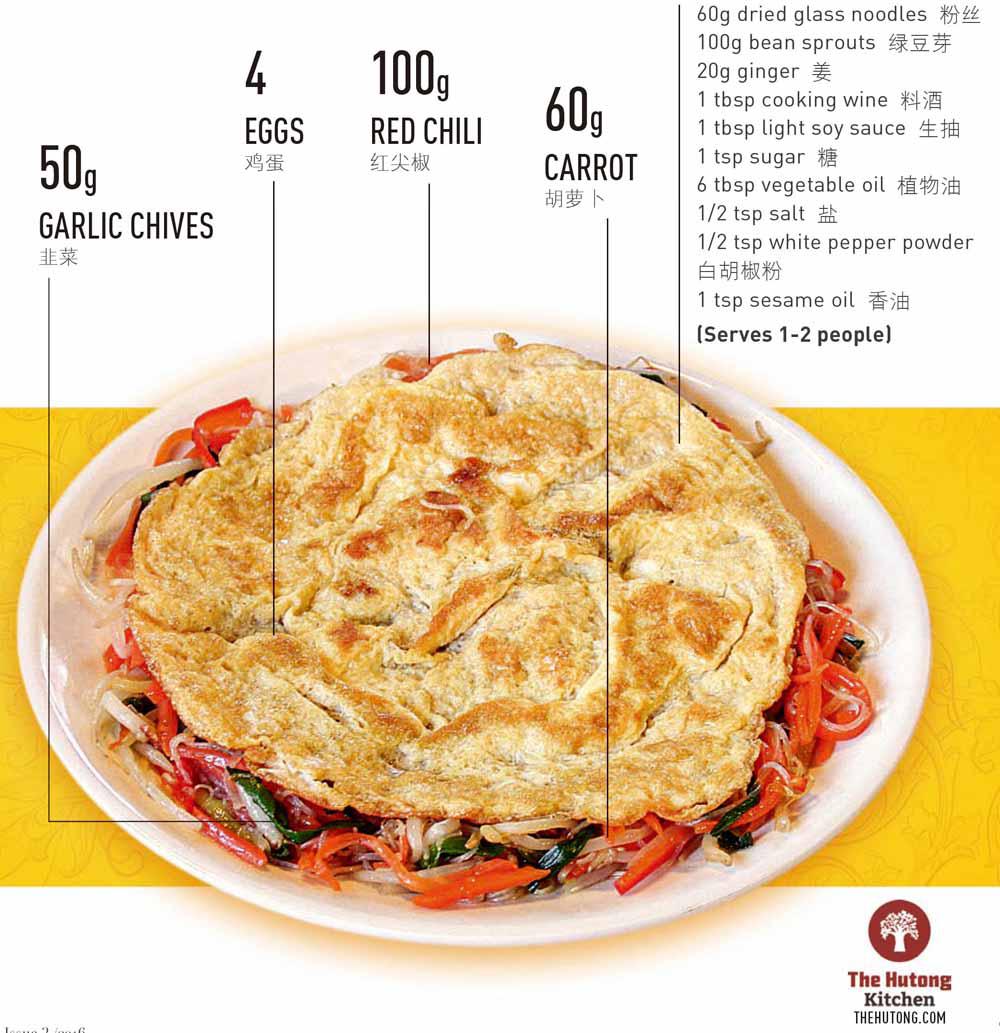炒合菜Stir-fry Spring
孙佳慧


Grab a hand full of veggies and take a bite of the season
在生機勃勃的季节里,用韭菜、萝卜、鸡蛋汇成一顿喷香的“咬春”饭
With Spring Festival over, its time to embrace the dishes of the season. Stir-fry hecai (合菜, mixed vegetables) is a popular option, as it provides freedom of choice. It is considered Beijing cuisine, which was developed through absorbing many different aspects of other regional cuisines.
As a typical Beijing home-cooked dish, its pretty easy to prepare. There arent strict lists of ingredients, so there is a lot of room to mix and match according to personal preferences. Usually, people choose fresh, seasonal vegetables like carrots, garlic chives, bean sprouts and red chili peppers. But feel free to replace garlic chives with spinach or celery. Some also like to include glass noodles (粉丝). Meat lovers can also feel free to throw some meaty chunks in there. Due to its flexible style, it has been dubbed “stir-fry whatever” (炒随便).
There is also a special version of this dish, called “stir-fry hecai with a hat” (炒合菜戴帽). The “hat” is actually an omelet. Fully stir an egg, add some water to dilute it, fry it into an omelet, and put it onto the dish. Voila, your “stir-fry whatever” has a hat.
In northern China, people eat hecai with a spring pancake (春饼), another Chinese traditional snack. The “pancake” is baked or steamed from wheat flour, which is a little thicker than those used for roast duck. People eat the spring pancake on the day of Lichun (立春, Spring Begins), the first of the 24 Solar Terms, as a customary way to celebrate the beginning of spring, which is also known as “bite the spring” (咬春). No one eats the spring pancake separately; they wrap the hecai into it.
The spring pancake rose in the Jin Dynasty (265 – 420) and has prospered since the Tang Dynasty (618 – 907). In the past, Lichun was valued by both Chinese emperors and civilians. The kings held great celebrations, but ordinary people could only celebrate it by “biting the spring.” Biting the spring implies that the commoners prayed for a good harvest year.
In some regions, the vegetables in hecaihave special meanings. People believe eating spring pancakes with celery and garlic chives will make them diligent and live longer, as Chinese “celery” (芹q!n) has similar pronunciation with “diligence” (勤q!n) and “garlic chives” (韭) is pronounced like “久” (ji^, long time).
So, if you want to have a good harvest this year, please open your fridge now. Just take out all the vegetables you have, and stir-fry them together for a special spring treat.

